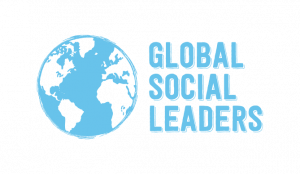We are delighted to share a blog written by Bárbara Láinez Millán, a student at Swans International School who is part of a team delivering a Global Goals project for the 2018-19 Global Goals Competition.
Their project is among over 620 social action projects currently running as part of the GSL movement and we are excited to be supporting them to design and lead positive social change in their community.
An eye-opening call to help relieve one of the most pressing issues we are experiencing in the 21st century and which will impact many to come.
Project Summary
Water waste is an extremely important issue in our modern society with more than a quarter of the clean, drinkable water our homes employ being poured down the drain every day. Not only don’t we realise the cost of this practice, but this also contributes to our growing ecological footprint which, inevitably, leads to the overall unsustainable ecosystem that is our planet.
As I am incredibly passionate about nature and the wonder that is our planet, I often get frustrated when I see how water is constantly contaminated and wasted. I realised how important an issue water scarcity and waste was when I found out that Lake Poopó, once Bolivia’s second-largest body of water, had evaporated completely, and the main suspect was global warming and climate change. I simply could not get my head around how the water situation could have reached that point, and I couldn’t just sit idly by and do nothing. This was our motivation to start this project.
We live in Marbella, in southern Spain, so water scarcity is an issue due to the warm, dry climate that we have here. Therefore, we chose to maximise the water-saving potential of our school so we could not only improve its sustainability but also relieve the burden on local water supplies by becoming more self-sufficient and making the water system here at Swans as closed as possible so water can be recycled and redistributed to a wide variety of uses.
Our main idea is to build a rainwater harvesting system which could be used to collect water, filter it and redistribute it throughout the school’s system. This water tank would also be connected to other sources of greywater in the school, such as water from taps which is not fit for drinking but could be reused, for instance, to water the gardens. Also, we are planning to reduce the water pressure and duration of water flow on taps, to find alternatives for school water fights and to change the times that the gardens are watered, so they’re watered as early as possible, before the sun is up, so less water is evaporated and absorption by plants is maximised.
Moreover, we would like to check the water system for leaks to make sure that no water is being wasted unnecessarily, educate students about water consumption in order to reduce waste in their homes too, and also introduce ways to reduce indirect water waste: ensuring that as much food as possible is fresh and locally-sourced ( water is required at every stage of food production – refining, processing… Eating fresher food means consuming less water, sugar, salt, preservatives and other chemicals.
Also, producing a tank of petrol requires a lot of water, so reducing the number of miles the food has to cover from farm to plate will also help save water, and the food will be fresher and richer in vitamins too! It’s a win-win situation) Furthermore, introducing Meatless Mondays, as beef is one of the most water-intensive proteins, needing 15,000 litres of water per kg, followed by red meats in general. Other, less water-intensive proteins include beans, lentils and peas. Chicken has a much lower water footprint than beef, so giving up or just cutting back on red meat could help too.
My Journey
As a result of participating in the Global Social Leaders competition, I have become more aware of environmental issues and how much water I consume every day. Furthermore, I feel like I’ve developed problem-solving and decision-making skills, and have been able to take initiative and voice my opinions during discussions with my peers and the senior management of our school, who we have met up with to discuss our project and whether it is possible to bring our ideas to fruition.
The biggest challenge we have faced is the issue of cost; rainwater harvesting systems are expensive to install despite the fact that, in the long run, water savings are massive and the return on investment is significant. However, we overcame this problem by suggesting several options for different types of systems, outlining the costs of each one and including diagrams and information on which systems would fit the school’s needs best at the lowest possible price.
The Next Chapter
I would definitely recommend to other people my age to get involved in similar projects. In fact, I already encourage my friends to be as environmentally conscious as possible and to participate in any event that will allow them to help our planet.
My call to action to them is to always reduce their environmental impact in as many ways as possible, even if they seem small or insignificant at the time, like taking shorter showers or turning the tap off whilst brushing their teeth, I remind them that it can have a massive impact in the long run if they keep it up and inspire others to do the same.
The 2018-19 GSL Global Goals Competition is now open and runs until June 2019. If you belong to one of the 700+ teams of students currently delivering a social action project as part of the competition we would love to hear from you and feature your blog and project photos on our website to inspire others.




